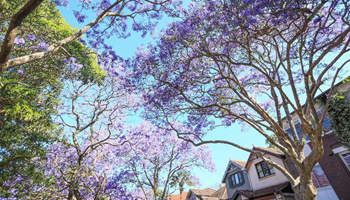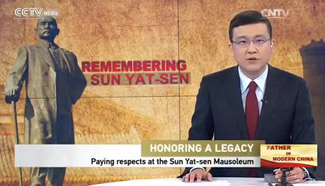BEIJING, Nov. 11 (Xinhua) -- U.S. President Barack Obama and President-elect Donald Trump on Thursday held their first post-election meeting at the White House on a wide-ranging topics.
After the behind-closed-doors meeting, Obama said "my number one priority in the coming two months is to try to facilitate a transition that ensures that our president-elect is successful," adding that if Trump succeeds, "then the country succeeds."
He said they had discussed domestic and foreign policy and was "very encouraged" by Trump's interest in working with Obama's team on issues facing the United States.
He called for unity, saying "it is important for all of us, regardless of party, regardless of political preferences, to now come together to deal with many of the challenges we face."
For his part, Trump said "a lot of different situations" were discussed during the one-and-half-hour meeting, which was much longer than expected.
"We discussed a lot of different situations -- some wonderful and some difficulties," he said.
White House spokesman Josh Earnest said although the two man did not resolve their differences, "the meeting might have been at least a little less awkward than some might have expected."
The meeting was the first such event held between Obama and Trump since the former real estate billionaire was elected president on Wednesday.
Obama said Wednesday during a speech that it is paramount to make sure the transition was peaceful despite the differences between him and Trump.
Despite appeals for unity, thousands took to the streets in some major U.S. cities on Wednesday after the former real estate billionaire was declared the 45th president of the United States.
In New York, as many as 5,000 people gathered Wednesday night in front of Trump Tower to protest the billionaire's election.
Holding such signs as "Not my president," "Our city does not support hate," and chanting "We reject the president-elect," the protesters, mostly young people, were visibly angry and upset.
Protesters had also raised many issues against Trump, including immigration, health care and women's rights. Many also questioned the country's electoral system that allowed Trump to snatch the presidency without winning the popular vote.
As a traditional Democratic stronghold, nearly 58 percent of voters in the State of New York cast ballots for Hillary Clinton, compared with 37 percent for Trump, according to official figures.
In San Francisco, California, two groups of protesters took to the street on Wednesday night chanting for racial equality and women's rights and against the discrimination they said was emboldened by Trump's rhetoric along the campaign trail.
A speaker of the organization said it was the first step against the president-elect's "bigoted, extreme right wing agenda" and more would follow in the coming days.
In the neighboring San Francisco Bay city of Oakland tear gas was deployed by police as protests entered a second night. The crowd reportedly grew to some 7,000 people at one point on Wednesday and several buildings were vandalized; bonfires were set on at least one street.
Students at several schools in the cities of Oakland, Berkeley and San Jose, and in Contra Costa County earlier in the day walked out of class along with their teachers. At Berkeley High School, 1,500 students walked to downtown Berkeley in the morning and staged a silent sit-in at a plaza.
In Los Angeles, protesters blocked a section of Highway 101 for hours on Wednesday night.
A majority of voters in California, the largest state in the country, voted for Democratic candidate Hillary Clinton.
Up north in the state of Oregon, about 300 people marched through downtown Portland and dozens of them blocked traffic in the city and enforced a delay for trains on two light-rail lines. A crowd of much smaller size showed up in downtown Seattle in the state of Washington, and four males and one female were injured in an unrelated shooting incident nearby.
In downtown Chicago, protesters on Wednesday night held signs reading "No to Trump, No to Racism and Sexism," "Not my America, Not my President," "Dump Trump," "Hate won't make America great," and zigzagged through the bustling South Michigan Avenue, Lakeshore Drive and the Magnificent Mile before returning to the rally site opposite Trump Tower across the Chicago River and staged a sit-in.
Throughout the country, protesters were mainly young adults, and statistics show 55 percent of people in the group aged 18 through 29 voted on Tuesday for Clinton, and 37 percent of those in the same group voted for Trump.
In an election year when Americans were eager to hear policy positions on real issues facing the country, the most important issues along the campaign trails were Trump's comments on women and Clinton's email scandal.
Many voters felt frustrated or even despaired that they had no other choice but to choose from the two most disliked candidates in American history.
The probably most divisive and scandalous election in American history has eroded voters' faith in the two-party system, with many voters calling it a game of money, power, and influence. Enditem










